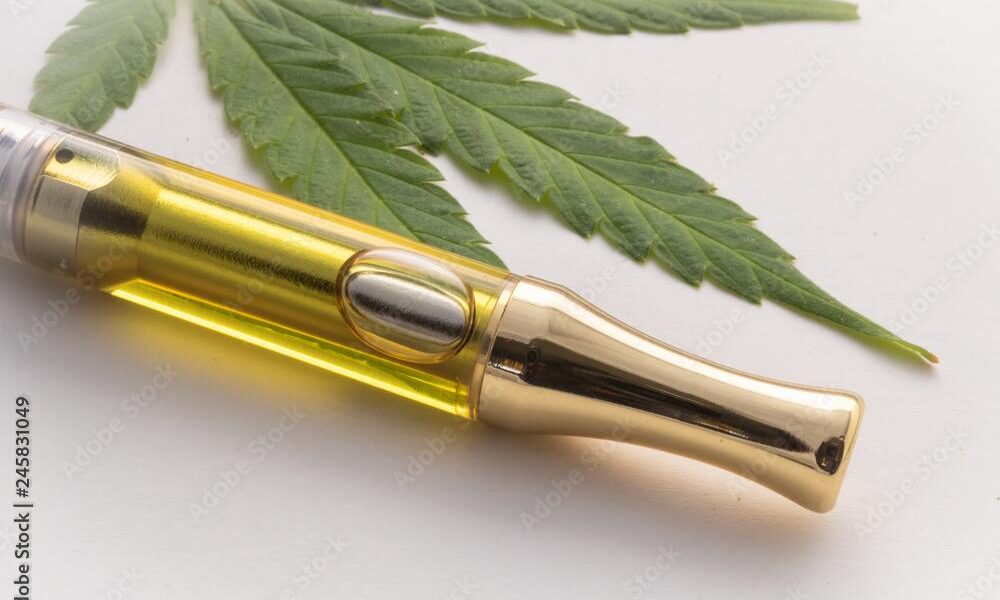In the ever-evolving landscape of natural remedies, cannabis oil infused with THC (tetrahydrocannabinol) stands out as a potent substance garnering both intrigue and consideration. Once relegated to the fringes of medicine and wellness, this aromatic oil has transcended stigma, emerging into the spotlight of contemporary health discussions. As society increasingly embraces holistic approaches to treatment, understanding the multifaceted role of THC in cannabis oil becomes essential. Whether seeking relief from chronic pain, exploring its potential in anxiety management, or merely satisfying curiosity about this complex compound, cannabis oil offers a gateway into the intricate world of cannabinoids. Join us as we delve into the science, benefits, and considerations of THC-rich cannabis oil, unraveling its place in both tradition and modern wellness practices.
Table of Contents
- Understanding the Components of Cannabis Oil THC
- The Therapeutic Potential of THC in Medicinal Cannabis Oil
- Safe Usage Guidelines for Cannabis Oil with THC
- Navigating the Legal Landscape of THC-Infused Products
- Q&A
- Insights and Conclusions
Understanding the Components of Cannabis Oil THC
Decoding the makeup of cannabis oil containing THC requires an examination of several key elements that contribute to its unique properties. At the forefront is delta-9-tetrahydrocannabinol (THC), the primary psychoactive component responsible for the characteristic “high” associated with cannabis. However, THC does not operate in isolation. It interacts with various secondary compounds that can enhance or modulate its effects. These include:
- Cannabinoids: Other compounds like CBD, CBG, and CBN that can influence the overall experience.
- Terpenes: Aromatic compounds that contribute to the plant’s flavor and scent, also believed to have their own therapeutic effects.
- Flavonoids: Antioxidants that support the plant’s color and flavor while potentially offering health benefits.
The method of extraction also plays a critical role in shaping the final product. Common techniques include CO2 extraction and ethanol extraction, each with its unique advantages. The purity and potency of cannabis oil can vary significantly based on these methods. A table below provides a snapshot comparison of these extraction techniques:
| Extraction Method | Advantages | Disadvantages |
|---|---|---|
| CO2 Extraction | Highly efficient, produces pure oil, retains terpenes. | Expensive equipment and complex process. |
| Ethanol Extraction | Cost-effective, simple process, extracts a broad range of compounds. | Can draw unwanted chlorophyll, potentially altering flavor. |
The Therapeutic Potential of THC in Medicinal Cannabis Oil
When exploring , it is essential to recognize the compound’s remarkable interactions within the human body. THC, or tetrahydrocannabinol, is the primary psychoactive component in cannabis that contributes to the “high” sensation. However, its medicinal properties extend far beyond recreational use, offering a plethora of healing benefits that are gaining attention in both scientific research and holistic health circles. Some of the key therapeutic effects include:
- Pain Relief: THC has been shown to effectively reduce chronic pain by altering pain perception pathways in the brain.
- Anti-Inflammatory Properties: It can help diminish inflammation, making it useful for conditions like arthritis and multiple sclerosis.
- Appetite Stimulation: Patients undergoing treatments such as chemotherapy often experience loss of appetite; THC can counter this effect and encourage eating.
- Anxiety Reduction: In controlled doses, THC can alleviate symptoms of anxiety and stress, promoting relaxation.
Moreover, the synergy of THC with other cannabinoids in cannabis oil can amplify its therapeutic efficacy. This entourage effect suggests that a full-spectrum oil, containing a range of cannabinoids and terpenes, may enhance the overall benefits attributed to THC. Patients using medicinal cannabis oil often report improved outcomes for conditions such as:
| Condition | Reported Benefits |
|---|---|
| Chronic Pain | Significant pain relief and improved quality of life. |
| Insomnia | Better sleep quality and reduced sleep onset latency. |
| Anxiety Disorders | Calmness and a decrease in panic symptoms. |
| PTSD | Reduction in flashbacks and emotional distress. |
Safe Usage Guidelines for Cannabis Oil with THC
When it comes to using cannabis oil infused with THC, it’s essential to prioritize safety and education. Firstly, begin with a low dosage to assess your body’s reaction. Every individual’s tolerance can vary significantly, making gradual increases crucial. Here are some additional tips to keep in mind:
- Consult a Healthcare Professional: If you’re taking other medications or have health concerns.
- Store Properly: Keep your oil in a cool, dark place to maintain its efficacy.
- Avoid Mixing: Steer clear of alcohol or other substances that may interact negatively with THC.
It’s also beneficial to be aware of the method of consumption, as this impacts both the onset and intensity of effects. Consider using a reliable source for purchasing cannabis oil, as quality varies greatly among products. Keep the following in mind regarding consumption:
| Consumption Method | Onset Time | Duration of Effects |
|---|---|---|
| Tinctures | 15-45 minutes | 6-8 hours |
| Capsules | 30-90 minutes | 4-6 hours |
| Topicals | Immediate | Varies |
Navigating the Legal Landscape of THC-Infused Products
Understanding the intricate regulations governing THC-infused products is essential for both consumers and producers in today’s evolving cannabis market. As states and countries implement a diverse range of laws, navigating this legal landscape can be daunting. Numerous factors influence these regulations, including:
- Manufacturing Standards: Ensuring that products meet health and safety guidelines.
- Labeling Requirements: Clear identification of THC content and recommended usage.
- Age Restrictions: Legal age for purchase varies significantly between regions.
- Licensing: Different licenses may be required for production and distribution.
The legal environment is constantly shifting, making it vital for stakeholders to stay informed about updates. Penalties for non-compliance can be severe, leading to hefty fines or even the shutting down of businesses. To streamline understanding, here’s a brief overview of typical elements found in the regulations:
| Aspect | Typical Requirement |
|---|---|
| THC Content Limit | May vary; often capped at 10mg per serving. |
| Packaging | Child-resistant and tamper-proof designs. |
| Advertising | No targeting minors; must avoid health claims. |
Q&A
Q&A: Unpacking Cannabis Oil THC
Q1: What is cannabis oil THC?
A1: Cannabis oil THC refers to a concentrated extract derived from the cannabis plant that contains high levels of tetrahydrocannabinol (THC). THC is the psychoactive compound responsible for the “high” associated with marijuana use. The oil is obtained by extracting the essential cannabinoids from the plant, resulting in a potent product that can be used in various forms, such as tinctures, capsules, or infused edibles.
Q2: How is cannabis oil THC made?
A2: The production of cannabis oil THC involves several processes, typically starting with the selection of a cannabis strain high in THC content. The plant material is then subjected to extraction methods such as CO2 extraction, ethanol extraction, or using oils like olive or coconut. The chosen method helps to separate the THC and other beneficial cannabinoids from the plant’s fibers, terpenes, and plant matter, yielding a viscous oil that can be either full-spectrum or isolated.
Q3: What are the potential benefits of cannabis oil THC?
A3: Advocates often highlight various potential benefits of cannabis oil THC, including pain relief, reduction of nausea, increased appetite, and improved sleep. Some users find it helpful in managing symptoms of conditions such as arthritis, multiple sclerosis, and certain cancers. However, it’s essential to note that while anecdotal evidence abounds, scientific research is ongoing, and results can vary from person to person.
Q4: Are there any risks associated with using cannabis oil THC?
A4: Yes, while many users report benefits, there are also risks involved with THC consumption. These can include short-term effects like impaired memory, altered judgment, and coordination difficulties. Long-term use may lead to dependence and, in some cases, exacerbate anxiety or psychotic symptoms, especially in predisposed individuals. As with any supplement or medication, it’s crucial to consult with a healthcare professional before use.
Q5: How can cannabis oil THC be administered?
A5: Cannabis oil THC can be administered in several ways. Sublingual tinctures are placed under the tongue for quick absorption, while capsules provide a more controlled dosage. Edibles infused with cannabis oil are popular but have delayed effects, which can lead to unintentional overconsumption. Additionally, some prefer topical applications for localized relief without psychoactive effects.
Q6: Is cannabis oil THC legal?
A6: The legality of cannabis oil THC varies significantly by country and within regions of countries. In some places, THC-rich products are fully legal for medical and recreational use, while in others, they remain strictly controlled or prohibited. It’s crucial to familiarize yourself with local laws and regulations before purchasing or using cannabis oil THC.
Q7: How does cannabis oil THC differ from CBD oil?
A7: The primary difference between cannabis oil THC and CBD oil lies in their main active components. THC oil is high in tetrahydrocannabinol, producing psychoactive effects, while CBD oil contains cannabidiol, known for its therapeutic potential without the high. Consequently, THC is often sought for its euphoric effects, while CBD appeals to those preferring wellness benefits without intoxication. There’s also the potential for a synergistic relationship in full-spectrum products that include both compounds.
Q8: What should consumers consider before trying cannabis oil THC?
A8: Potential consumers should consider several factors: their local legality, personal health conditions, tolerance levels, and the type of product they choose. It’s also beneficial to start with a low dose and gradually increase as needed, ensuring they monitor the effects closely. Consulting with healthcare professionals familiar with cannabinoid therapies can provide additional guidance tailored to individual needs.
—
With this Q&A, we hope to shed light on the multifaceted world of cannabis oil THC, empowering readers to make informed decisions regarding its use!
Insights and Conclusions
the exploration of cannabis oil THC offers a fascinating glimpse into the intersection of nature and science, tradition and innovation. As societal perceptions evolve and research continues to unveil the myriad potential benefits and nuances of this compound, it becomes clear that THC-infused oils are not merely a trend but a significant aspect of the broader dialogue on wellness and medicinal alternatives. Whether you’re a seasoned enthusiast, a curious newcomer, or someone navigating health landscapes, understanding the complexities of cannabis oil THC is essential. As we move forward, let us approach this journey with curiosity, mindfulness, and a commitment to informed choices, unlocking the full potential of this remarkable plant one drop at a time.



